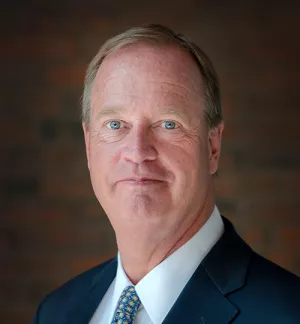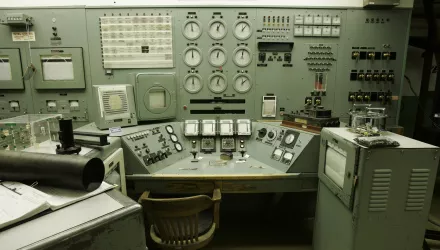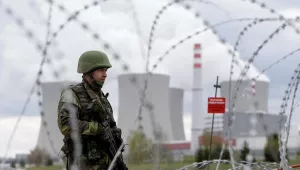In 2007, undercover investigators posing as businessmen successfully ordered enough radiological material to build a dirty bomb to be delivered to a commercial post office, with almost no scrutiny from the Nuclear Regulatory Commission (NRC), the entity charged with regulating such activities.
The sting exposed weaknesses in our regulatory regime for such materials. The NRC's mandate is "to enable the nation to safely use radioactive materials for beneficial civilian purposes while ensuring that people and the environment are protected." This mandate contains an internal tension. To enable the use of such materials is to facilitate it; to ensure their safe use is to restrict it.
Radiological sources emit radiation that we can use to our benefit. They are widespread and essential to American life. We use them in hospitals to diagnose and treat disease, in agriculture to avoid crop damage without the use of pesticides, in oil exploration to decide where best to drill wells, and in factories to purify food supplies. Yet these same materials-in the wrong hands-can be used to make weapons that could spread radioactive contamination and wreak economic damage. Securing and disposing of radiological sources is a matter of public safety, and indeed of national security.
Unfortunately, the U.S. system for regulating the security and disposition of radiological sources is flawed. Every year, the National Nuclear Security Administration (NNSA) collects about 2,250 unused and unwanted radiological sources for safe storage and disposition. This is a massive effort, and amounts to a government subsidy. To date, NNSA has collected some 19,000 such sources, containing enough radiation for about 500 dirty bombs. Unfortunately, more such sources are being created every year than NNSA can collect. This system cannot be safely or rationally sustained.
The NRC should take two actions. First, it must establish the bona fides of all purchasers of radiological sources (above a relatively low level) before issuing a license. This process should include a plausible economic purpose, the means to secure the material, and a safe disposition plan. We require all kinds of businesses to "know their customer," including stock brokers. No less should be expected of those who sell and regulate the sale of radiological sources.
Second, the NRC should require a deposit equal to the likely cost of safe disposition, to be refunded once disposition is complete. This second step would have two beneficial effects. First, disposition costs would be internalized, ensuring that true economic costs are taken into account during decisions to make or to purchase such sources. This would be economically efficient. It may also mean that we create fewer radiological sources, as businesses take into account true costs vs. alternatives. Second, companies would have strong economic incentives to dispose of unused or unwanted sources (instead of leaving them unused and potentially vulnerable to theft by terrorists). They would get their deposit back while no longer being liable for the source.
There are other incremental steps we should take to reduce the threat of a threat of a dirty bomb attack. The National Academy of Sciences recently recommended that the government promote the replacement of cesium chloride (a particularly nasty substance) as a radiation source. This is within our technological capability, without sacrificing the potential benefits of such material. We can also do more to strengthen security at sites where radiation sources are used, to make it more difficult for thieves to gain rapid access to radiological material. Relatively cheap upgrades can significantly increase the time it would take to gain access to dangerous material.
However, if we are to make a lasting improvement in our efforts to prevent a dirty bomb attack, we need a better system for regulating the security and disposition of radiological sources. After all, how much sense does it make to require a larger deposit on beer bottles than we do on radioactive material?
William H. Tobey is a senior fellow at the Belfer Center for Science and International Affairs at Harvard's John F. Kennedy School of Government. He was until recently deputy administrator for Defense Nuclear Nonproliferation at the National Nuclear Security Administration.
Tobey, William. “U.S. Needs Better System for Securing Radioactive Material.” Belfer Center for Science and International Affairs, April 13, 2009




